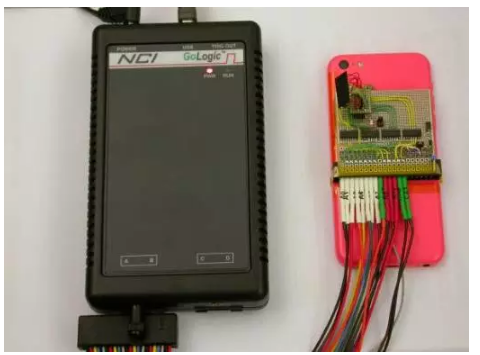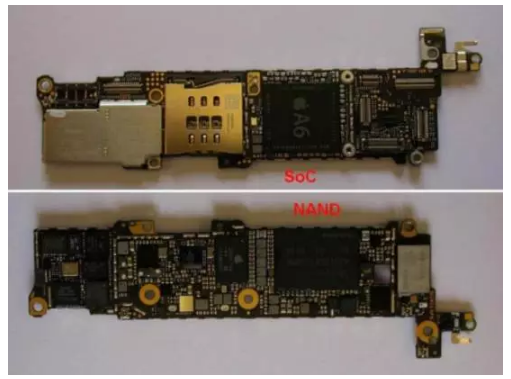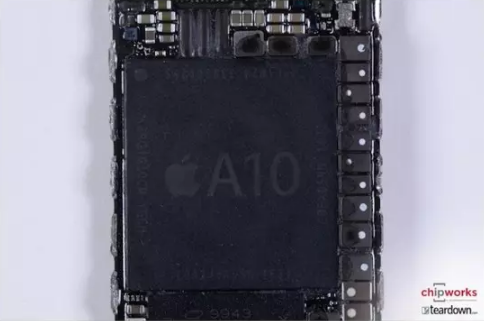Dr. Cambridge Reveals iOS Password Violence; Sina Weibo Last Night | Lei Feng Morning Post
Cook fancy AR: Apple digs from Oculus, Magic Leap

Just one day after Apple CEO Tim Cook disclosed his views on augmented reality, Business Insider discovered that Apple recently recruited two big names from augmented/virtual reality companies. Zeyu Li, a former computer vision engineer at Magic Leap, is currently working as an "Advanced Computer Vision Algorithm Engineer" at Apple. Magic Leap, an augmented reality technology startup, is developing a head-mounted display similar to Microsoft's HoloLens holographic glasses.
Former Oculus research scientist Yury Petrov is currently working as a "research scientist" at Apple. According to Petrov's LinkedIn profile, his research covers areas such as virtual reality experience and computer simulation algorithms. Although the position is vague, considering his expertise, he thinks it is reasonable for him to develop similar projects in Apple.
Doctoral students at Cambridge University completed the FBI's inability to bypass iOS's password restrictions

According to foreign media reports, Dr. Sergei Skorobogatov, a doctoral student at the University of Cambridge in the United Kingdom, recently published a new study detailing a technology that can help the FBI bypass the iOS password restrictions on the San Bernardino gunner iPhone. Earlier this year, some security researchers suggested that the FBI use the "NAND Flash Mirror Copy" method to crack the iPhone. They can remove the NAND flash memory from the iPhone and then transfer it to a vest device with the same hardware as the iPhone to export the complete image, and then perform brute-force password guessing.

Skorobogatov's research shows that he successfully put the theory of “NAND flash mirroring replication†into practice. He removed NAND flash memory and replicated data multiple times from an iPhone 5c phone running iOS 9.3. He then used an automated software to brute force passwords. Skorobogatov said that brute force cracking of the four lock screen password takes about 20 hours, and the six lock screen password takes about three months.
Sina Weibo last night

Sina Weibo reproduced late at night.
At 22:30 on September 16th, many netizens reported that Sina Weibo’s slow access and search function could not be used, suggesting “network errorâ€.
At 23:20 on the same day, Sina’s Weibo CEO Wang Gaofei wrote in his personal microblog, “This time is equivalent to the women's volleyball team + Wang Baoqiang...†The words implied that this visit was equivalent to the Chinese women’s volleyball team winning the Olympic Games. Wang Baoqiang's traffic generated when two public issues broke out during the divorce incident.
Sina Weibo has not yet responded to requests for comment on server conditions.
A10 Fusion Comprehensive Analysis: TSMC 16nm Process, Ultra-thin Design

iFixit completed the dismantling of the iPhone 7 Plus yesterday. Now, experts at Chipworks dismantled an iPhone 7 and conducted detailed analysis of the device's A10 Fusion chip. Chipworks confirmed that the chip was produced by TSMC's TSMC foundry and the chip size was 125 square millimeters. The iPhone 7's A10 Fusion is confirmed to have 2GB of running memory, while the iPhone 7 Plus is equipped with 3GB of running memory.
Since TSMC uses InFO packaging technology, the A10 chip is very thin. This new technology is also the main reason why TSMC can exclusively obtain orders for A10 chips. The memory used by the A10 chip is the Samsung K3RG1G10CM 2-GB LPDDR4 chip, which is similar to the running memory in the iPhone 6s.
For the baseband chip, Chipworks found the XMM7360 from Intel and two SMARTi 5 RF receiver chips and a power management chip. Qualcomm and Intel will supply chips for the iPhone 7 and iPhone 7 Plus at the same time. Due to CDMA licensing issues, Intel cannot produce CDMA baseband chips. Qualcomm's baseband chips can support both GSM and CDMA networks.
U.S. government releases sniper drone system

Recently, Darpa launched a sniper drone surveillance project called the Aerial Dragnet. It can track all unmanned aerial systems flying above 1000 feet above the big city. At the same time, a flight system equipped with sensors can monitor the dynamics between buildings at high altitudes. In this way, even without knowing the exact location of UAVs, the system can accurately locate them, and thus combat them. Those based on drone attacks and other crimes.
“Aerial Dragnet wanted to develop a system to adapt to the basic functions of small UAVs in urban areas, enabling non-line-of-sight tracking and identification of potential threats at slow, low-altitude flights. At the same time, Darpa could use data output from the Aerial Dragnet system. Draw a constantly updated airspace common operational map and transmit it to authenticated users via secure data links, explains Darpa.
Chrome releases important security updates that will defend against hacking attacks from quantum computers

Google said on Thursday that Chrome 54 will use a technology called CECPQ1 to encrypt data sent and received on the site, and said that this encryption technology is mainly used to prevent future hacker attacks from using quantum computers.
Quantum computers have their own special data storage methods, and their data storage methods are called qubits. They use the principle of superposition in quantum mechanics, and are different from the ordinary computer's binary units 0 and 1. Although this storage method is still in the testing phase, once it matures, its unique design will overturn the existing encryption technology.
Now, the core of encryption technology is to increase the difficulty of decryption. But quantum computers can use the quantum superposition principle to greatly reduce the difficulty of attacking the encryption technology of existing computers.
Li-(CFx)n Electro-Chemical Battery
DADNCELL lithium fluoride battery (Li-(CFx)n) battery is a safe and stable battery system with an energy ratio of up to 2,400 wh/kg because of the positive electrodes used in CFC materials.
Fluorocarbon materials have stable physical and chemical properties and excellent high and low temperature operating properties. ≤600°C does not decompose, low temperature does not crystallize, and stable operation in a high and low-temperature environment at 20~125°C. The battery also has higher safety performance in short circuits, collisions, and compressions, and has explosion-proof and self-burning characteristics. At present, the whole series of products of the company's lithium fluoride batteries have passed the acupuncture test. Also, the lithium fluoride battery discharges only <0.5% per year, and the battery has a storage life of more than 10 years, at which time the battery can be thrown to save 95% of its electricity. There are no heavy metals and other pollutants in the production, use, and scrapping of batteries, which are green and environmentally friendly. All battery materials of DADNCELL batteries are independently developed and produced by the company, which can ensure the complete and long-term stable supply of the supply chain. Lithium fluoride batteries currently developed and produced by the company are applied on a large scale in fields with strict requirements for high and low temperature and high energy density, such as automobile tire pressure gauge (TPMS) batteries, industrial control motherboard batteries, computer motherboard batteries, smart instrument batteries, emergency equipment power supply for oilfield rigs, offshore rescue. Bioflash, implantable medical battery, etc.
The company can formulate DADNCELL lithium fluoride series battery solutions according to customer requirements.
Li-(Cfx)N Electro-Chemical Battery,Li-(Cfx)N Battery Pack,Lithium Carbon Fluorine Soft Pack Battery,High Temperature Resistance
Shandong Huachuang Times Optoelectronics Technology Co., Ltd. , https://www.dadncell.com